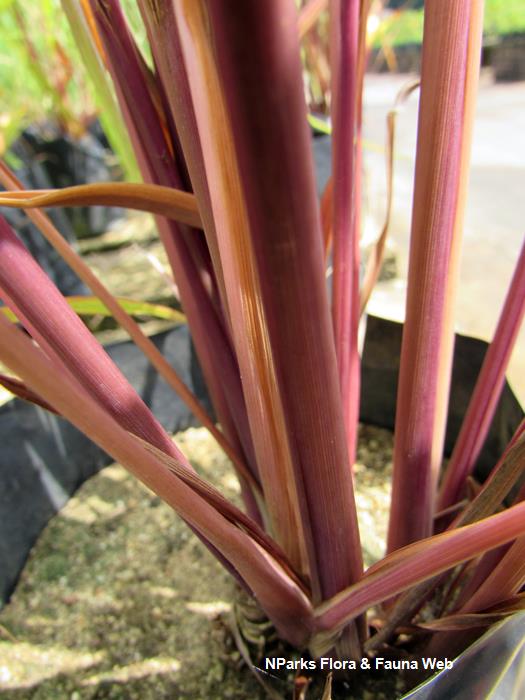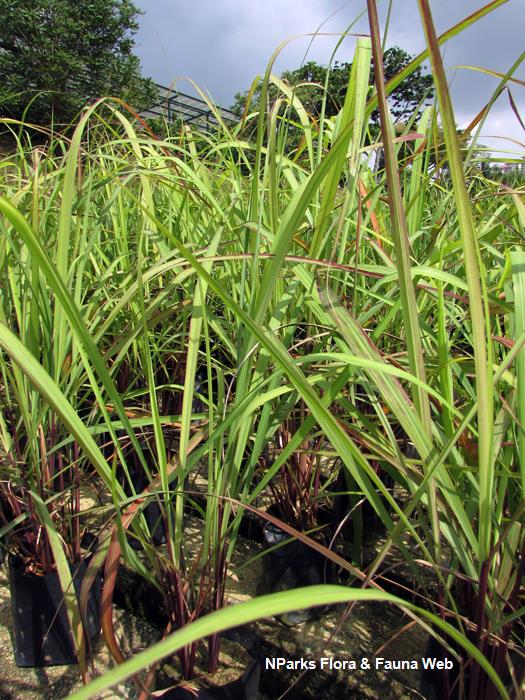
Back
Cymbopogon nardus (L.) Rendle
| Family Name: | Poaceae (Gramineae) |
| Common Name: | Citronella Grass, Ceylon Citronella |
Name
Classifications and Characteristics
| Plant Division | Angiosperms (Flowering Seed Plants) |
|---|---|
| Plant Growth Form | Grass or Grass-like Plant (Tall Grass (Poaceae)) |
| Lifespan (in Singapore) | Perennial |
| Mode of Nutrition | Autotrophic |
| Plant Shape | Grassy |
| Maximum Height | 1.5 m to 2.5 m |
| Maximum Plant Spread / Crown Width | 1 m to 1.5 m |
Biogeography
| Native Distribution | South Sudan to South Africa, India to Vietnam |
|---|---|
| Native Habitat | Terrestrial |
| Preferred Climate Zone | Tropical |
| Local Conservation Status | Non-native (Horticultural / Cultivated Only) |
Description and Ethnobotany
| Growth Form | Perennial grass forms clumps up to 2.5 m tall. |
|---|---|
| Stems | The pseudostem (the base of the leaf blade) is reddish. |
| Similar | Citronella (scientific name: Cymbopogon nardus) looks like Lemongrass (scientific name: Cymbopogon citratus) but it has a wider leaf blade and the base of the stem (technically known as a pseudostem) is reddish, while Lemongrass has a green one. |
| Cultivation | It grows best in bright, but filtered light and leaves may be burned by intense sun. |
| Ethnobotanical Uses | Others: Essential oil extracted from the leaves is used as a mosquito repellent. |
Landscaping Features
| Desirable Plant Features | |
|---|---|
| Thematic Landscaping | Economic Garden |
Plant Care and Propagation
| Light Preference | Semi-Shade |
|---|---|
| Water Preference | Moderate Water |
| Plant Growth Rate | Fast |
| Rootzone Tolerance | Drought Tolerant |
Foliar
| Mature Foliage Colour(s) | Green |
|---|---|
| Mature Foliage Texture(s) | Smooth |
| Foliar Type | Simple / Unifoliate |
| Foliar Shape(s) | |
| Foliar Venation | Parallel |
| Foliar Apex - Tip | Acuminate |
Image Repository
Others
| Master ID | 29582 |
|---|---|
| Species ID | 3891 |
| Flora Disclaimer | The information in this website has been compiled from reliable sources, such as reference works on medicinal plants. It is not a substitute for medical advice or treatment and NParks does not purport to provide any medical advice. Readers should always consult his/her physician before using or consuming a plant for medicinal purposes. |








